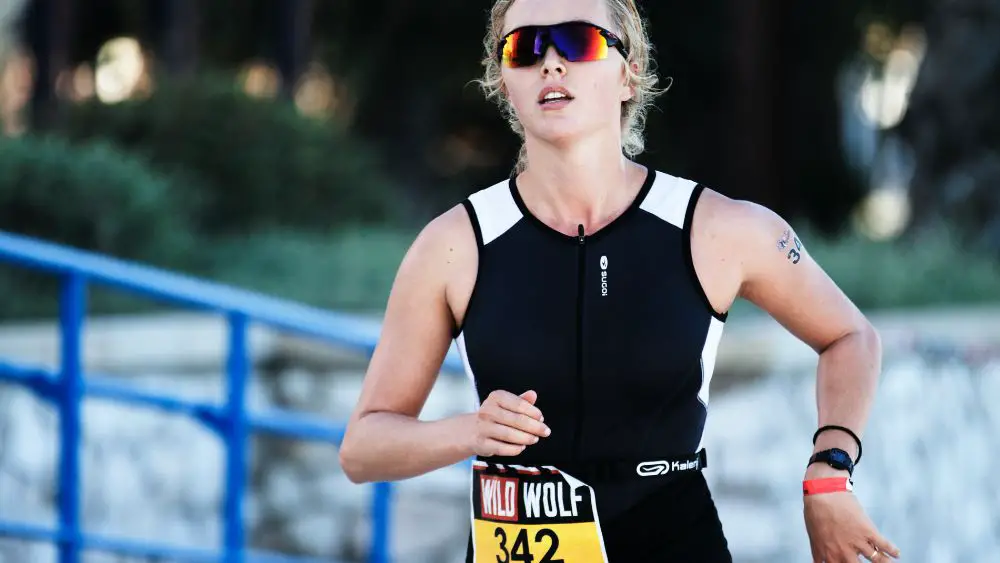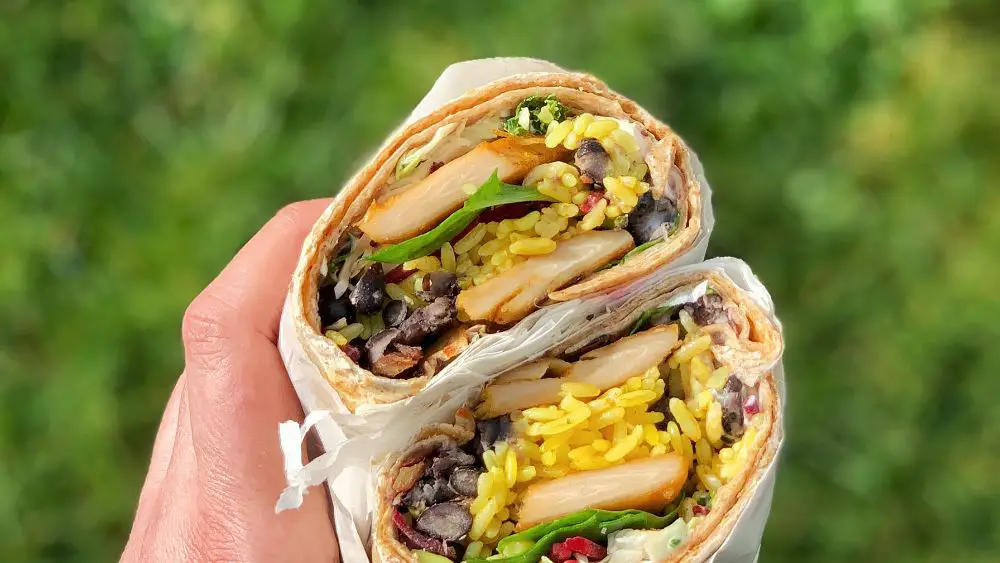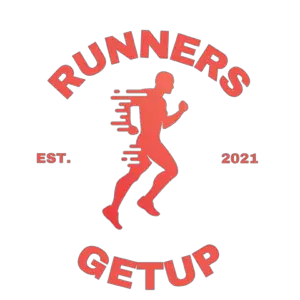This post contains affiliate links.

Recovery should be your focus after the marathon. Having the right food to support your body is a must to avoid injuries and promote good rehabilitation of your muscles. After all, the grueling 26.2 miles of running has put a strain on different parts of your physique.
Your post-marathon meal plan should focus on building up carbs, electrolytes, proteins, and body water content. These are the compounds that will help you replenish nutrients that you used up during the race.
Ahead, let’s take a deeper look into why these are important as well as some top-tier meal choices.
Food Groups to Consume
Protein
Protein is essential in improving muscle repairs after a race, and it reduces body aches substantially. During training or intense workout, your body’s muscle proteins are broken down. This is especially true for marathoners who push different muscle groups to their limits.
To compensate, a good amount of protein is necessary to avoid muscle damage. According to the International Society of Sports Nutrition, you must consume around 0.3 to 0.5 grams of protein per kilogram of weight, especially after a workout.
Doing so will promote muscle strength, improve composition, as well as prevent muscle atrophy.
The optimal amount to immediately consume after a marathon is around 30 grams of protein. Some snacks that fit the criteria are protein bars, eggs, tunas, cheese, yogurts, and salmons.
Carbs
Eating carbs after a marathon is just as important as eating them before and during. Before the race, carbs are utilized as glycogen stores so you can use them during the race. After the race, carbs replace the sent glycogen stores for recovery.
According to the United States Anti-Doping Agency, 1 to 1.2 grams of carbohydrates per kilogram of body weight is the recommended amount.
This should be done in the first 4 hours after the event. Athletes can even consume small pieces of carb snacks every half an hour as a refueling routine.
Such snacks include cereal, pasta, fruits, granola, bread, and potatoes. Remember to pack some extra food on your running belt so that you are ready for recovery anytime, and anywhere.
Related post: Why Runners Eat Pasta Before A Marathon (Carb Loading Guide)
Electrolytes
If there is one thing that the body does a lot during a marathon, it is sweating. The 26.2 miles is no joke and your body needs to regulate your temperature to avoid overheating.
Furthermore, your body’s electrolyte reserves will be at their all-time low. It is a good idea to restock these with some healthy juices or fruits that are rich in sodium and potassium. Watch out for electrolyte imbalance as it results in fatigue, muscle spasms, nausea, and vomiting. These conditions must never riddle a marathoner, especially during the event.
Should I Eat Immediately After the Race?
The short answer is yes. Timing is everything in terms of body recovery after a workout as harsh as a marathon. In research conducted in 2013, it was found that the human body’s efforts to replenish muscle fuel are greatly improved after exercise.
Marathoners must take advantage of this window by eating a healthy amount of carbs and protein immediately after the endurance activity. If you try to delay your food consumption, then there is a huge chance that your body’s ability to store glycogen will not be as efficient as before
As stated earlier, consuming around 1 to 1.2 grams of carbs as well as 0.3 to 0.5 grams of protein per body weight is recommended to jumpstart your recovery. One can even translate this to a ratio of 3 carbs to 1 protein in terms of nutrition.
Additional research even suggests that fat in the form of whole milk is also beneficial to the body for recovery. However, you should tread lightly on this finding especially if you have gut lactose intolerance issues.
To induce your body’s rehabilitation process, small snacks or meals every half an hour for a full 4 hours after a marathon is suggested.
By the way, I made an article that dives deeper into what to eat before and during a marathon. I highly recommend that you check those out as well.
Best Post-Marathon Meals
Here are some good post-marathon meals (for lunch, dinner, and breakfast) that will aid your recovery.
Burrito Rice

This neat combo of carbs and protein should be more than enough for refueling as your first big meal after the marathon. Assuming that your run was in the morning, then this is perfect for some lunchtime munch.
A small serving of burrito rice has around 40 grams of carbs. Depending on the amount of chicken or beef burrito you put in, the protein content can reach up to 10 grams. Then again, you can adjust this according to your liking especially if you are extra hungry.
The best thing about it is you can garnish it with touches of vegetables here and there for additional value!
Pasta with Chicken
You can never go wrong with a pasta and chicken meal. The carb loading will be handled by the pasta, while the protein will be taken care of by the chicken.
Many runners, such as I, recommend pasta as a pre as well as a post-workout meal. This makes it perfect as a lunch or dinner on the day of the event.
1 cup of pasta should have around 60 grams of carbohydrates. A slice of chicken breast has around 20-3 grams of protein, which is more than enough for the recommended 3:1 ratio.
Not only that, but pasta is easy to prepare or order in your favorite restaurant. Thus, this is my go-to meal on this list.
Ground Beef with Potatoes
Another food perfect for post-marathon dinner is ground beef with potatoes. With a savory taste that will surely warm your tired body, it also packs a punch in terms of nutritional value.
Using lean ground beef will improve the quality, taste, as well as health benefits of this meal. A serving will have around 24 grams of carbohydrates that are taken from the potato as well as a substantial amount of sodium and potassium (electrolytes).
Also, the protein content is around 7 grams, which will still fit the 3:1 ratio recommended by doctors worldwide. This recipe is also rich in Vitamin C, which promotes the health and growth of different body tissues.
Salmon with Rice and Veggies Dinner
Salmon is a guilt-free source of protein which is also good for the heart. It is known to contain Omega 3 which regulates cardiovascular activities and is a very important system for a runner to maintain.
Salmon aids in the production of muscle fibers as well as their repair. When combined with rice in a moderate serving, you have a complete meal that can ease body pains.
You can eat this combo alongside some veggies such as asparagus to provide additional health value. It is a food perfect for your post-run dinner as it is easy on the tongue as well.
Oatmeal with Fruits and Yogurt Breakfast
Oatmeal is a surefire way to aid in recovery without overwhelming your body.
As it is a carb-loaded food, oatmeal is known to fill up glycogen reserves at any time of the day. When combined with fruits or nuts such as bananas, raisins, and almonds, you’ll have a good balance of carbs and protein in a bowl.
What I like about an oatmeal breakfast is that it takes less than 10 minutes to make. This means more time to recover, rest, or train for your next marathon event.
Honorable mentions
Here are some snacks that deserve recognition as good post-workout food:
- Quinoa Mixture Bowls
- Banana with Greek yogurt
- Egg and Mayo
- Healthy Taco with Vegetables
- Tofu and Pork
- Mixed Nuts Trail
- Toast, Peanut Butter, and Jelly
The Takeaway
Marathons are challenging activities that require lots of preparation. Apart from training, you must also be ready for your nutritional plans. This includes the pre, intra, and post-marathon meals.
All of these components support each other to give you an enjoyable time in the field. For post-marathon food, you must focus on carbs, proteins, and electrolytes to facilitate your muscle healing and rejuvenation.
This way, your body will be ready to take on a new training cycle and face new challenges ahead!

